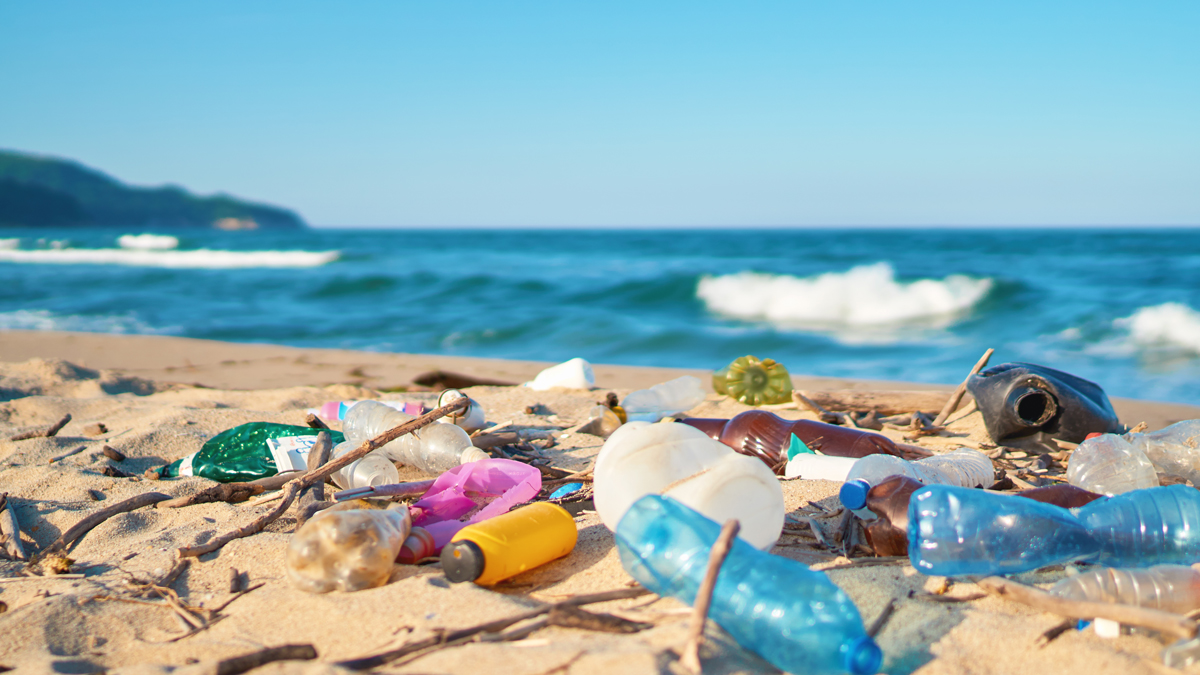
More than a hundred years since the first breakthroughs in plastics, these have become ubiquitous in our lives: Plastic pens and scissors with plastic handles come in plastic blister packs, which we take home in plastic bags, where we place them next to a computer and smartphone whose plastic cover encases a plastic circuit board. In much of our world today, it can be hard to look in any direction without seeing something made of plastic. This material is extremely useful; it is also, unfortunately, greatly hazardous to our health, our livelihoods, our food system, and our natural environment, and increasingly so as a century of waste accumulates in our landfills, oceans and streets. New research by UNCTAD has helped us understand the scale of the issue at hand: more than 336 million tons of plastics were traded in 2018 only, representing about $1 trillion, a significant 5% of world trade. A key problem is that about 75% of all plastic ever produced has become waste, showing the low waste disposal and recycling capacity of most countries. Furthermore, unless arrested, plastics production is expected to quadruple in the next thirty years, largely due to growth in Africa, the Middle East and developing Asia.
These problems particularly affect coastal areas, due to their dependence on sectors such as tourism and fishing—sectors especially hurt by plastic bottles washing up on idyllic shores, by plastic bags and abandoned fishing nets choking valuable fish and reducing marine biodiversity, and microplastics inserting toxins into the marine (and even terrestrial) food supply. Island and coastal countries are especially vulnerable to these hazards due, among other reasons, to limited space to dispose of waste. The opportunity exists that the nations of the region, by reducing dependence on plastics and developing in the sunrise industries of plastics alternatives, may protect their countries from these environmental hazards to which they are especially vulnerable, protect their main sources of livelihood, and create useful employment and economic development.
Some alternatives already exist and may provide accessible opportunities for the sustainable development of Latin American and Caribbean nations. These include glass, ceramics, natural fibers (coconut, palm), pulp (paper, cardboard), and even organic wastes such as bagasse and corn husks. Furthermore, new alternatives are constantly in development, and may provide the region with the opportunity to enter the production of entirely new materials based on the former.
These alternatives may not develop unless political leadership is exercised towards this end. The successful development of industries to produce inputs for or finished alternatives to plastics would benefit from coherent trade policies, industrial circularity, effective waste management policies, and incentives for the emergence of sustainable plastic substitutes. The coordination of enterprise, civil society and all levels of government, as well as global coordination, is necessary if the nations of the Caribbean Basin and other Latin American countries are to join the market for plastics alternatives.
Aware of the hazards faced and the opportunities available, some nations in the region have already implemented measures that contribute to the transition of their economies towards alternatives to plastics. For example: Barbados has banned single-use plastic containers, cutlery and straws, as well as some kinds of plastic bags; Belize has issued regulations concerning plastic bags and straws, and styrofoam vessels; Guyana has banned the importation and use of styrofoam items. Such measures help create conditions where the development of alternatives becomes necessary, thus stirring economic action towards the search for and development of substitutes. Those nations that choose this path may find in joining early the global move towards a circular economy an opportunity for their prosperity and wellbeing.
General objectives
Aid countries of Latin America and the Caribbean in finding and developing pathways to environmentally sustainable prosperity by promoting and developing alternatives to plastics, with a focus on the challenges and opportunities available to the Caribbean and the coastal areas of Latin America.
- Understand the impact of plastic manufacture and waste in the region
- Explore the development of alternatives to plastics as an environmental and economic opportunity for the region, with emphasis on the Caribbean case
- Explore commercial, industrial and trade policy options to promote the development of alternatives to plastics
- Investigate the role of the private sector in shaping and implementing plastics regulations
- Explore options to improve waste management, reduce plastic use and increase recyclability in the region
Central matter
During this virtual seminar, we will explore the option of developing alternatives to plastics as a way for countries in the region, especially islands, to prevent plastics contamination—which not only produces unsightly litter, but threatens the industries of tourism and fishing, and introduces toxins into the marine food chain—and use this as an opportunity for becoming more prosperous by joining early a growing global industry, and a movement towards a circular economy.
- The consequences of plastics for the lives and livelihoods of the nations of the region
- The economic opportunities afforded by developing alternatives to plastics
- Policies to facilitate the development of the industry of alternatives to plastics
- Example of the process of transition for private enterprises in a country where some measures have already been implemented
Information about the event
Intended for: Stakeholders in leadership and policymaking for economic and environmental matters in the region of Latin America and the Caribbean
Format: Online conference with a duration of 120 minutes (90 minutes of presentations and 30 minutes of questions and answers), to be performed via Zoom
Date and time: Thursday, 29 April 2021, at 11:00am Caracas - 17:00 pm Geneva
Language: English (main) and Spanish (simultaneous translation)



